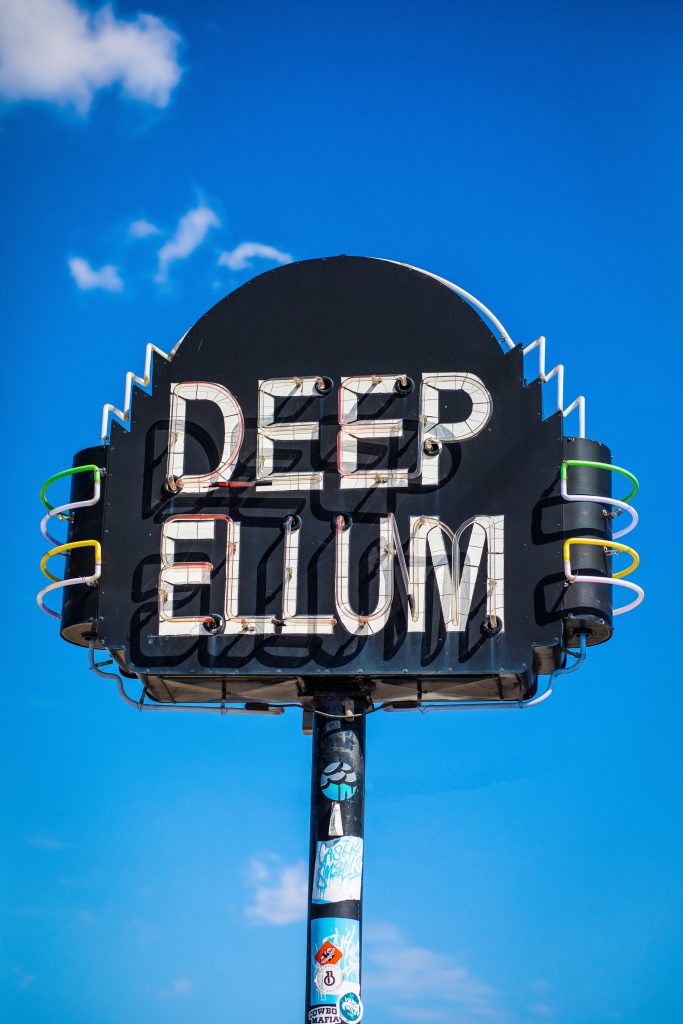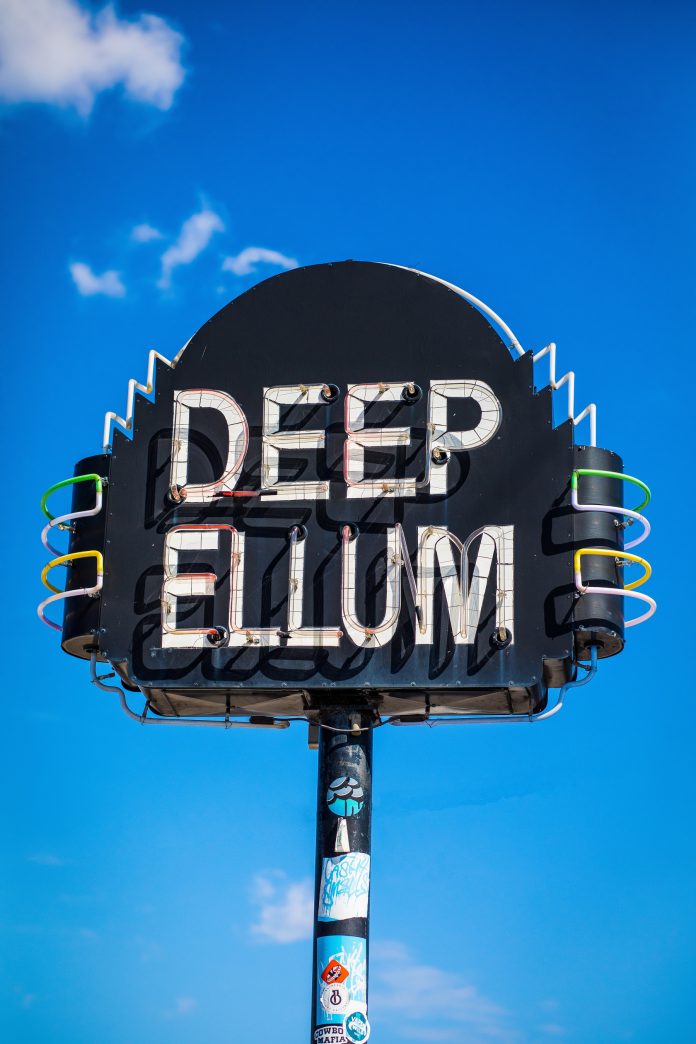In conjunction with Deep Ellum’s 150th anniversary, the African American Museum in Dallas will host a community/family event on Saturday, Nov. 11 to mark the day the African American Museum opened its doors in Fair Park. The event will include arts and crafts, a paint party, live music, documentary films, exhibition trivia and commemorative gifts.
Connected to Deep Ellum, Central Track was once a thriving African American community, with roots dating back to the Civil War. Central Track was demolished in the 1940s to make way for North Central Expressway and the I-345 overpass.
Central Track: Crossroads of Deep Ellum unravels the growth and demise of North Central Avenue, in the area known as Central Track or Stringtown, which connects Deep Ellum to what was called Freedman Town after the Civil War. The area was later renamed Short North Dallas then Old North Dallas before being identified as Uptown. The exhibit focuses on the 1920s and 1930s and features newspaper clippings, archival photographs, posters, and recordings of blues, jazz, and popular music of the period.
“Seeing a World Blind Lemon Never Saw” presents a photographic series made by Alan Govenar from 2021-2023, exploring rural East Texas and little-known places in Dallas, locations Blind Lemon visited or alluded to in his songs. These exhibitions are the fourth and fifth of five exhibitions created and launched by Documentary Arts founder Alan Govenar to honor Deep Ellum’s century-and-a-half milestone.

Central Track and Deep Ellum were places where day laborers were picked up and dropped off, often for work in the cottonfields. The expanding railroads brought commercial and industrial development and a thriving entertainment sector.
The neighborhoods surrounding Central Avenue boasted vibrant African American communities and an array of Black-owned businesses, from shoeshine stands and street vendors to variety shows and movie theaters to music shops, drug stores, cafés, and most notably, the landmark building at 2551 Elm Street (the headquarters of the Colored Knights of Pythias).
Opened in 1916, the building, designed by William Sidney Pittman— the first African American architect to practice in Texas – was a center of community activity, which provided offices for doctors, dentists, lawyers and other Black professionals.
Featuring the photography of Alan Govenar, an award-winning writer, poet, playwright, photographer and filmmaker, 34 large images of rural East Texas and early Dallas neighborhoods interrogate the landscapes of the legendary blues singer Blind Lemon Jefferson, lyricizing the environment and experiences where Jefferson was born and lived.
Govenar’s compelling photographs of Jefferson’s environment are characterized with chromatic elegance and depth. Governar is a Guggenheim Fellow and author of more than 35 books, and he is the director of Documentary Arts, a non-profit organization founded to advance essential perspectives on historical issues and diverse cultures.
The exhibition raises questions about cultural identity difficult to reconcile, juxtaposing the harsh realities of racism to the vitality of a community that struggled to survive. While few photos have been found, numerous newspaper accounts bring to life a world little known and often overlooked that was destroyed in the 1940s to make way for North Central Expressway and the I-345 overpass.
The newspaper clippings about Central Track and Deep Ellum in this exhibition appeared in white and Black newspapers around the U.S., most notably The Dallas Morning News, Dallas Express and Indianapolis Freeman. Many conveying racist stereotypes, the clippings establish the cultural context in which they were written and illustrated. This, in contrast to the racist content are advertisements and notices published in the same newspapers that reveal the enduring resilience of the African American community.
The co-curators of “Central Track: Crossroads of Deep Ellum” are Alan Govenar and Phillip Collins, and the curator of “Seeing a World Blind Lemon Never Saw” is Phillip Collins.
Three other exhibitions “When You Go Down In Deep Ellum” and “Unlikely Blues: Louis Paeth and Blind Lemon Jefferson” at the newly opened Deep Ellum Community Center (2528 Elm St. A in Dallas) and “Invisible Deep Ellum,” a public art installation under the I-345 overpass.
The event will be followed with a panel discussion and book signing at the Nasher Sculpture Center Wednesday, Nov. 15, 2023, at 5:30 p.m., 2001 Flora St., Dallas, 75201.
Highlighting the efforts of Govenar and Documentary Arts to focus public attention on the enduring significance of Deep Ellum, the talk will feature Govenar joined by Bob Ray Sanders and Norma Adams-Wade.
The discussion will provide context and commentary on Deep Ellum’s storied history and discuss the role art plays in urban growth and the sometimes-unintended consequences of that growth. The discussion is free, but registration is required.
Free and open to the public, the exhibitions open Saturday, Nov. 11, 2023, and run through May 30, 2024, at the African American Museum, Dallas in historic Fair Park (3536 Grand Ave, Dallas, 75210). The African American Museum, Dallas is open Tuesdays through Fridays from 11 a.m.-5 p.m. and Saturdays from 10 a.m.-5 p.m. Free self-parking is available in nearby lots. For more information, go to aamdallas.org or call 214-565-9026.
The African American Museum, Dallas was founded in 1974 as a part of Bishop College.
The Museum has operated independently since 1979. For more than 40 years, the African American Museum has stood as a cultural beacon in Dallas and the Southwestern United States. Located in Dallas’ historic Fair Park, the African American Museum is the only museum in the Southwestern United States devoted to the collection, preservation and display of African American artistic, cultural and historical materials that relate to the African American experience. The Museum has a small, but rich collection of African art, African American fine art and one of the largest African American folk-art collections in the United States. Learn more at aamdallas.org.




